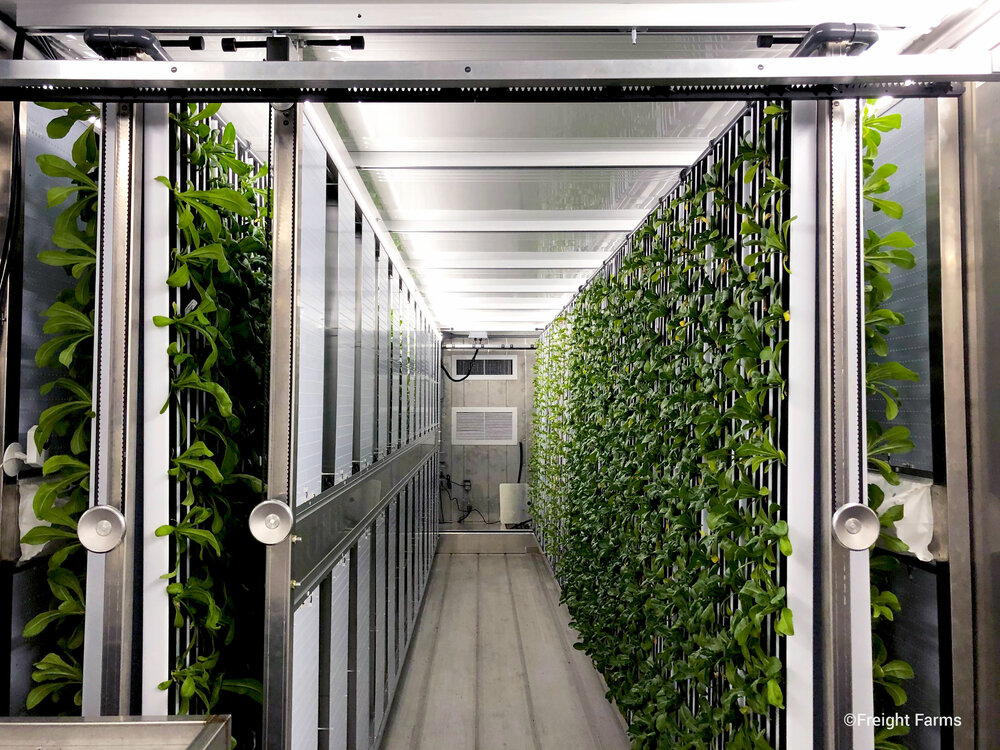CSUN to Shorten Distance Between Farm to Table with Freight Farming

CSUN has launched a new initiative to shorten the distance from farm to table by growing its own produce using a new form of agriculture- freight farming. Above is a photo of the inside of a container farm. Image courtesy of Freight Farms.
California State University, Northridge has launched a new initiative to shorten the distance from farm to table by growing its own produce using a new form of agriculture.
Freight farming allows one to break the traditional barriers of farming by growing produce not on vast swaths of soil, but in large freight containers. The containers are recyclable and can be used for growing as long as they are placed in an area that has access to water and power.
“The farm was purchased with the intent to continue CSUN’s commitment to help our food-insecure community,” said Austin Eriksson, CSUN’s director of energy and sustainability. “We are hopeful that this containerized, two-acre farm will provide a significant amount of fresh produce to our campus community and should be available through the campus food pantry.”
The freight farm will be located in the University Student Union so students and staff can have easy access. Since the University Student Union is the heart of campus and directly located near the sustainability center; the choice of location is a perfect representation of CSUN doing its part to reduce their carbon footprint and emissions.
Eriksson and Natale Zappia, director of CSUN’s Institute for Sustainability, are hoping having the freight farm on campus will spark an interest in this kind of agriculture.
“Living in the concrete jungle otherwise known as Los Angeles, can make it difficult to find sustainable areas for growing food,” Zappia said, noting that many of CSUN’s students commute to campus from dense, urban areas where the opportunities to grow one’s own food are few. “To grow food in a literal shipping container is an amazing concept, and to have it demonstrated at CSUN can present opportunities not just for the campus, but for the community, to learn new ways to feed ourselves sustainably.”
The containers are expected to arrive this month, and university officials hope to have their first crop planted by the summer time.
“By this fall, CSUN’s food pantry should have fresh produce grown from our very own campus and in future years it will provide food for our dining halls and student housing. ” Zappia said.
By growing food in these prebuilt containers, farmers have the ability to manipulate the environment that the plant grows. This gives them the freedom to choose plants that can only grow in specific regions, avoid extreme weather conditions, and most importantly, allow the food to be distributed locally rather than travel long distances to its table.
CSUN will be using containers from Freight Farms, a Boston-based agriculture technology company and was the first to manufacture and sell “container farms”: hydroponic farming systems retrofitted inside intermodal freight containers.

 experience
experience